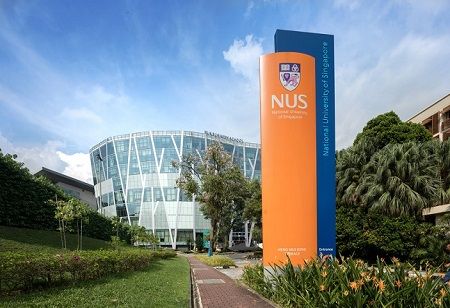In a novel approach to enrich the visitor experience while preserving the tranquility of its campus, the National University of Singapore (NUS) has launched a pilot program that’s garnering attention. From August 5 to September 30, 2024, NUS will employ 40 students as ambassadors to lead guided tours and educate international visitors on campus etiquette. This initiative is a proactive response to the increasing number of tourists attracted by NUS’s standing as a top-tier university, known for its cutting-edge facilities and contemporary environment. The university's rising popularity on social media has further fueled this trend, with posts promoting paid guided tours to popular sites such as the UTown campus, central library, and museum.
Associate Professor Daniel Goh, a leading figure in this initiative, highlighted that NUS is an open, inclusive, and accessible campus that serves a diverse community, including students, educators, industry partners, and visitors. To address the growing visitor traffic and minimize disruptions, particularly in the NUS University Town (UTown), the university has introduced its Pop-up Visitor Centre initiative.
This two-month pilot program enlists 40 undergraduate students who have been trained as student ambassadors. Employed and compensated under the NUS Student Work Scheme, these ambassadors will be easily recognized by their teal shirts while on duty and will be stationed at the Stephen Riady Centre on weekdays during working hours. Their main task is to lead guided tours around UTown, providing tourists with an inside look at campus life. These tours, which can be booked by travel agents licensed by the Singapore Tourism Board, will follow a curated route designed to manage tourist flow, reduce congestion, and minimize disruptions. In just the first two weeks of the pilot, the student ambassadors have already guided over 25 tour groups, hosting approximately 500 tourists.
Beyond leading tours, the ambassadors are also tasked with engaging smaller groups of tourists or addressing large groups led by independent guides, educating them on visitor guidelines and etiquette. They are also gathering information and understanding the work of these guides as the school continues to evaluate possible future measures. “We are mindful of ensuring a conducive learning environment for our students and keeping our facilities safe and secure”, Goh said, adding that multiple NUS departments have been working closely to implement targeted measures.
These measures include reminding students and staff not to use their card access to help visitors gain entry to restricted areas, working with licensed tourist guides and travel agents to communicate the school’s visiting guidelines, increasing the frequency of internal shuttle buses, ensuring priority boarding for staff and students during peak hours, monitoring food court and canteen crowdedness, selectively implementing non-access to visitors during peak hours, and enforcing ground surveillance to prevent trespassing into off-limits areas.
The initiative has sparked discussions on platforms like Reddit, where some users have raised concerns about the effects of campus tourism on safety and security. Issues such as tourists leaving tables uncleared and attempting to board buses despite clear signage have been highlighted.

